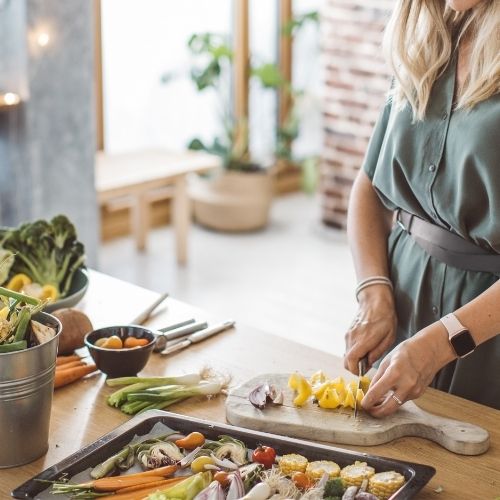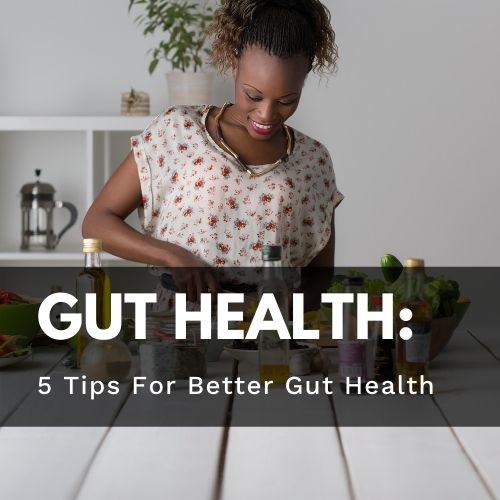Your Cart is Empty
COLLECTIONS:
SPECIAL OFFERS:
LEARN:

Healthy or Hype: Is Organic Food Better For You?
June 02, 2024 4 min read
Organic food is extremely popular these days.
Research shows that the global organic food market was $110.6 billion in 2016. It is expected to go over $262 billion by 2022.
Growing environmental concerns, increasing health consciousness, and rising per-capita spending are the main driving forces for this growth.
Putting popularity aside, is organic food worth the extra cost?
Let’s take a look below:

The Benefits of Organic Food
1. Organic Food Contains Fewer Pesticides
Conventionally grown, non-organic foods are grown with the aid of pesticides, which are chemicals that help to keep bugs and weeds away from food crops.
These pesticides often contain dangerous chemicals such as Organophosphorus, which is known to cause impediment to physical growth and development in humans (1).
You can read more here about the negative effects of pesticides.
Organic food, on the other hand, is produced using natural fertilizers like manure and compost. While organic crops don't have as much protection from bugs (and other critters), they are free of harmful chemicals.
2. Organic Foods Are More Nutrient Dense (especially antioxidants)
The amount of antioxidants found in organic foods is higher than conventionally grown food (1). Conventional foods contains pesticides and chemicals that break down antioxidants.
Antioxidants are compounds that help to protect your body's cells. We get antioxidants from the foods that we eat and from supplements (like our Essentially-U).
Antioxidants are a key to healthy aging, which is why it’s important to consume antioxidant rich foods.
3. Organic Food is Minimally Processed (and Tends to be Fresher)
Since organic foods are free of preservatives, their shelf life is limited.
This means that organic foods are, in general, fresher and healthier to eat.
Conventional foods are doused with preservatives and chemicals to increase their expiration date. This kills the raw and natural goodness of the food!
The best organic food can be found at local farms near your home. Foods from local farms have two major benefits:
- It's nearby and therefore doesn't include expensive shipping costs. This allows you to get higher quality food at potentially lower costs.
- Local food is fresher, since you are right next to the source. This means you won't be getting fruits and veggies filled with preservatives.
As a note, if you get your organic food and produce from a major chain health food store you will likely pay a premium for it.
At Utzy Naturals, we are big fans of shopping local and knowing the farmers that grow our food!
4. Organic Farming is Environment Friendly
Organic farming includes conservation of natural resources like water and energy. It also helps to reduce soil erosion, which increases fertility.
Organic farmers work hard to preserve topsoil, which is full of organic matter that helps to grow strong, healthy crops.
Pesticide-free farming is also healthier for the people and animals that make their home near organic fields and farms.
5. Organically Raised Animals are Healthier (and Happier)
Animal products are usually safer and more nutrient dense when taken from organically raised animals. The quality of food products such as meat and dairy items is directly related to the health of animals.
Since these animals are not injected with synthetically produced medicines, they develop stronger immunity over time. In short, the animals are healthier.
Animals raised in factory farms, on the other hand, tend to be sickly and full of chemicals. They are given high doses of growth hormones and antibiotics which, over the time, can lead to antibiotic resistance.
6. Organic Food Tastes Better (A BONUS BENEFIT)
Not only is organic food better for you, it flat out tastes better!
If you've ever had organic raspberries from your local farmer's market, you know how much better organic, natural food tastes.
This is due to a higher nutrient density.
So, if you're a foodie, consider switching to more organic foods simply for the better taste (and freshness).
Why Is Organic Food So Expensive?
Yes, organic food is comparatively expensive.
There are many reasons why organic food has higher costs.
These include:
•Organic farming doesn’t rely on deploying artificial agents which results in higher labour costs. Weeding, crop management, and other eco friendly practices require more hands.
•Another important factor that makes organic food expensive is its huge demand coupled with a somewhat limited supply. For instance, over 58% of Americans prefer eating organic food but not even 1% of farmland across the globe is designated for organic farming.
•In addition, an organic food certification is hard to get (and costly for the farmer). The USDA has strict guidelines that must be met before it certifies a producer as organic.
All of these different factors lead to increased costs.
Organic food suppliers understand these challenges and are working hard to make high quality, natural foods available to all at affordable prices.
Finally, Is Organic Food Worth It?
Absolutely!
Organic food is worth spending money on.
From a health perspective, reducing your exposure to the toxins and chemicals that are used in conventional foods is well worth the price increase.
Organic is also a better environmental option, as it supports sustainable agriculture.
And from a taste standpoint, organic food is off the charts!
So as long as you can justify the extra cost, make the switch to organic (or at least natural foods).
If adding the extra cost is too much for your budget, check out this list of the 12 foods you need to buy organic. At the very least, try and only buy organic versions of these important foods.
Take a stand and start buying organic, you will be supporting the environment, local farmers, and your own health!
_________________________________________________________________

Daniel Powers, MS
Daniel Powers (co-founder of Utzy Naturals) is a health fanatic and writer. He's obsessed with learning how to live a healthier, happier life and sharing his knowledge with others.
_________________________________________________________________
Leave a comment
Comments will be approved before showing up.
Also in Health
Subscribe
Sign up to get the latest on sales, new releases and more …
Join the Utzy Naturals Club!
Sign up and get the latest on sales, new releases, and more...











